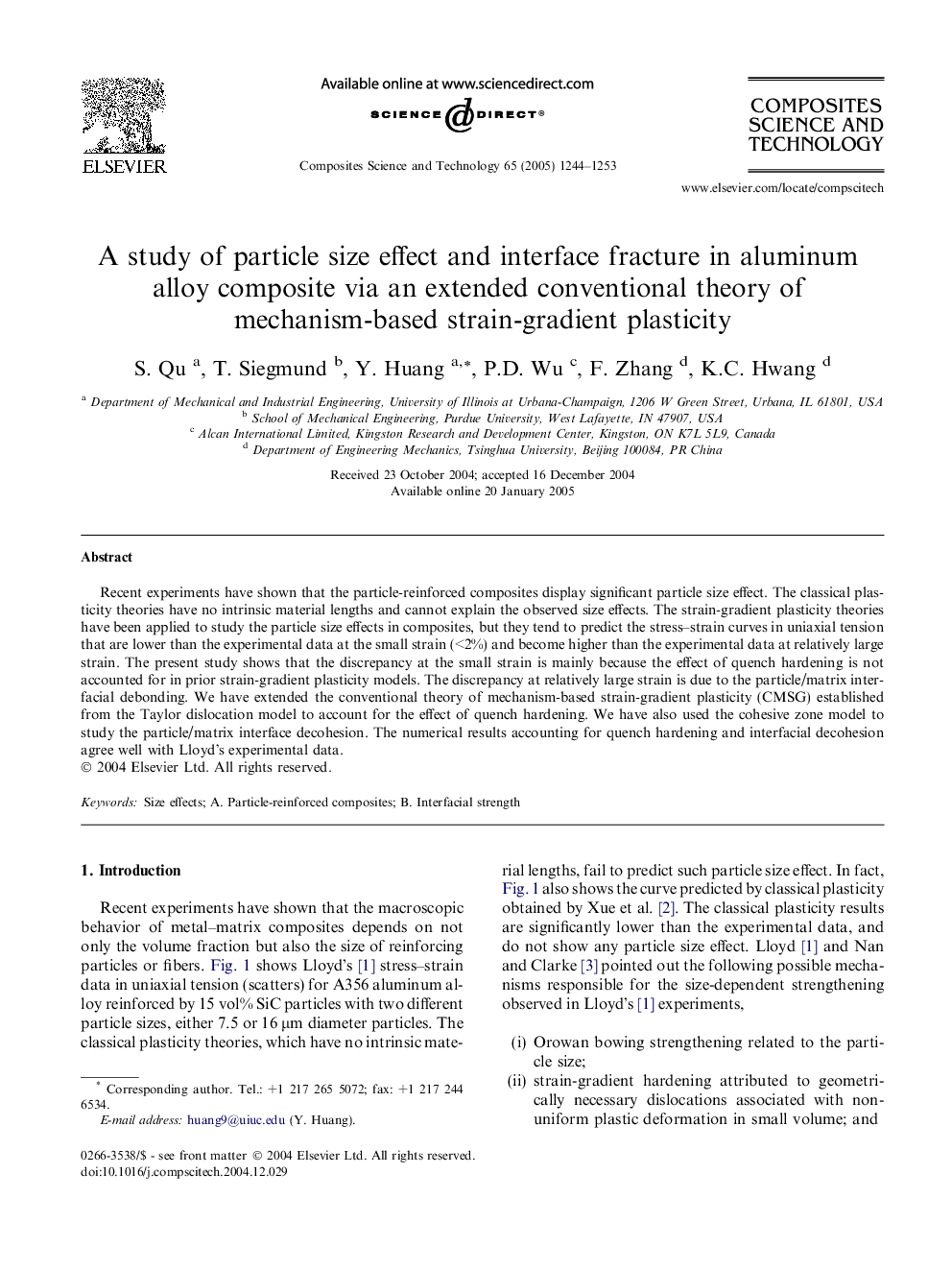| کد مقاله | کد نشریه | سال انتشار | مقاله انگلیسی | نسخه تمام متن |
|---|---|---|---|---|
| 9717386 | 1469571 | 2005 | 10 صفحه PDF | دانلود رایگان |
عنوان انگلیسی مقاله ISI
A study of particle size effect and interface fracture in aluminum alloy composite via an extended conventional theory of mechanism-based strain-gradient plasticity
دانلود مقاله + سفارش ترجمه
دانلود مقاله ISI انگلیسی
رایگان برای ایرانیان
کلمات کلیدی
موضوعات مرتبط
مهندسی و علوم پایه
سایر رشته های مهندسی
مهندسی (عمومی)
پیش نمایش صفحه اول مقاله

چکیده انگلیسی
Recent experiments have shown that the particle-reinforced composites display significant particle size effect. The classical plasticity theories have no intrinsic material lengths and cannot explain the observed size effects. The strain-gradient plasticity theories have been applied to study the particle size effects in composites, but they tend to predict the stress-strain curves in uniaxial tension that are lower than the experimental data at the small strain (<2%) and become higher than the experimental data at relatively large strain. The present study shows that the discrepancy at the small strain is mainly because the effect of quench hardening is not accounted for in prior strain-gradient plasticity models. The discrepancy at relatively large strain is due to the particle/matrix interfacial debonding. We have extended the conventional theory of mechanism-based strain-gradient plasticity (CMSG) established from the Taylor dislocation model to account for the effect of quench hardening. We have also used the cohesive zone model to study the particle/matrix interface decohesion. The numerical results accounting for quench hardening and interfacial decohesion agree well with Lloyd's experimental data.
ناشر
Database: Elsevier - ScienceDirect (ساینس دایرکت)
Journal: Composites Science and Technology - Volume 65, Issues 7â8, June 2005, Pages 1244-1253
Journal: Composites Science and Technology - Volume 65, Issues 7â8, June 2005, Pages 1244-1253
نویسندگان
S. Qu, T. Siegmund, Y. Huang, P.D. Wu, F. Zhang, K.C. Hwang,